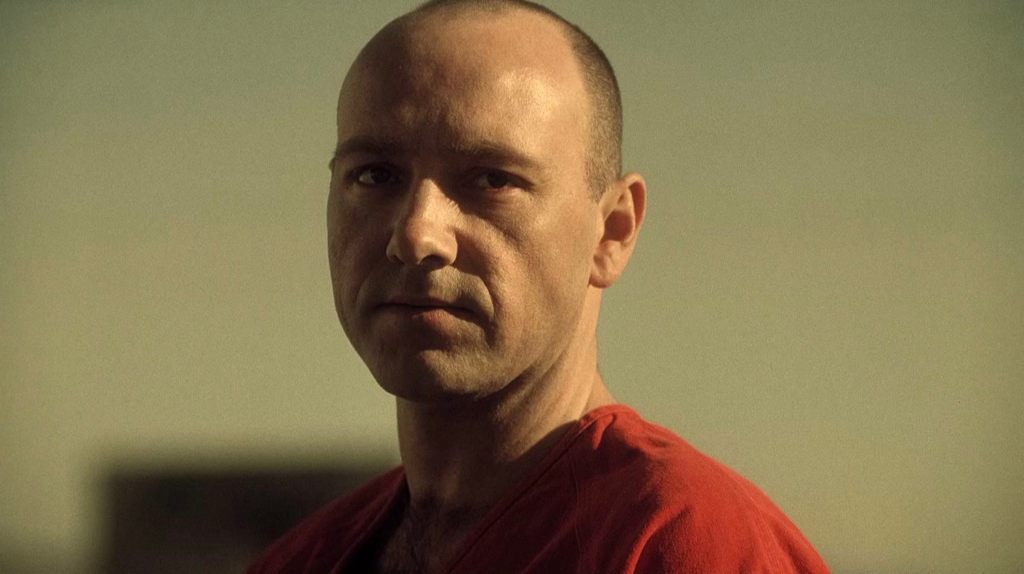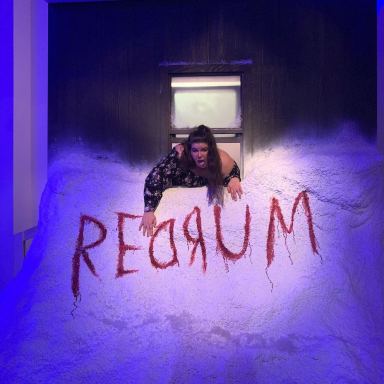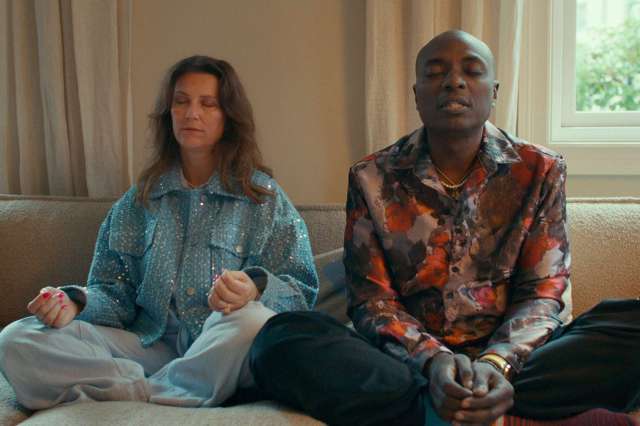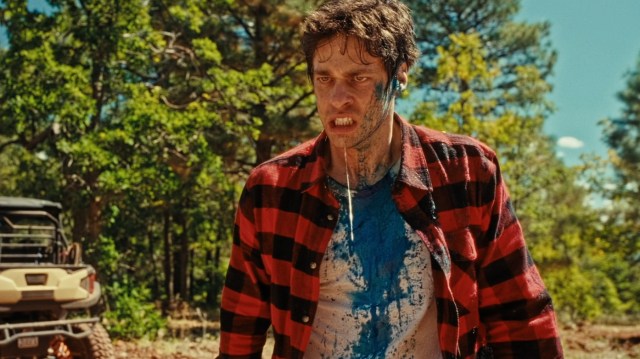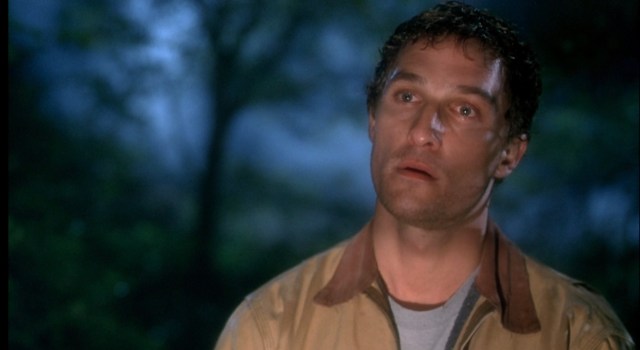If life were a movie, it would never have a happy ending, seeing as how everyone dies in the end. Yet over the years, a routine “Hollywood ending” was one where every villain was either killed or brought to justice, and the boy walked away with the girl and lived happily ever after under a gorgeous sunset. The good guys win and the bad guys lose.
Spoiler alert: The bad guy wins in all of the films below. In each case here, it is necessary to reveal the ending to explain exactly how the bad guy wins. That’s the entire purpose of the article.
Here is list—along with fifteen honorable mentions—of notable movies where the villain wins.
Cool Hand Luke (1967)
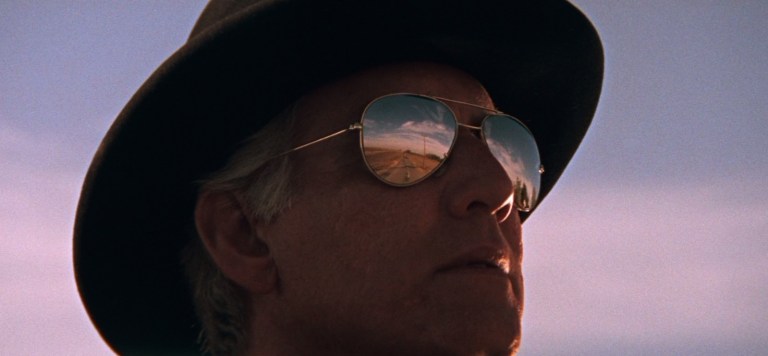
Although the warden in Cool Hand Luke, played with delicious sadism by Strother Martin, is the most identifiable “bad guy” in this morality tale about the brutality of the Southern prison system, the real “bad guy” in this film is the system itself. We expect the free-spirited prisoner Luke, played by Paul Newman in a career-defining turn, to win, but in the end Luke is shot in a standoff with police. We last see Luke smiling in the back of a police car as he is driven away to his certain death. Though Luke may have claimed a moral victory by never giving in to all the torture the warden and his cronies subjected him to, Luke’s life was still ended by the system represented by the warden.
Rosemary’s Baby (1968)
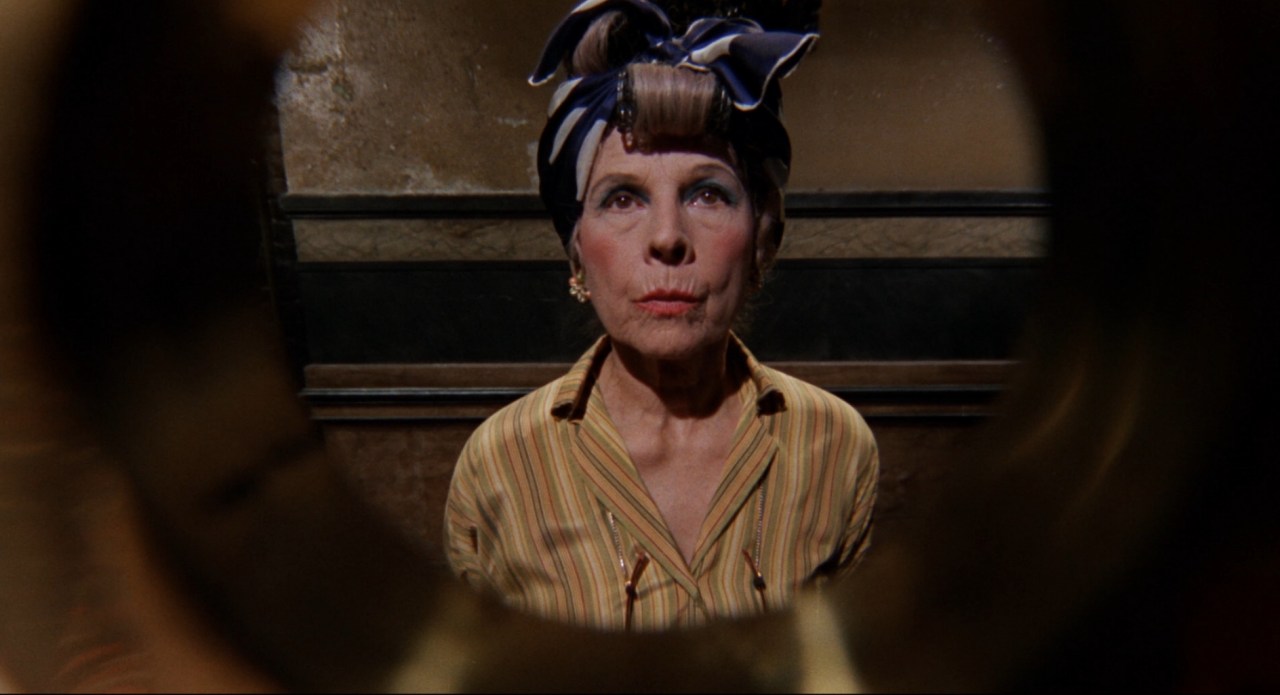
The first in a string of Satanic-themed blockbusters from the late 1960s into the mid-1970s, Roman Polanski’s Rosemary’s Baby stars Mia Farrow, a young married woman living in an apartment building with her husband (John Cassavetes), who, without her knowledge, arranges for her to be raped and impregnated by the Devil while she is supposed to be asleep. As her suspicions grow, everyone around her assures her that she’s just being paranoid. She is put under sedation for her delivery, and when she awakes she is told that her baby was stillborn. But then, to her horror, Rosemary realizes that even though the infant is alive, she has just given birth to the Devil’s son.
Night of the Living Dead (1968)
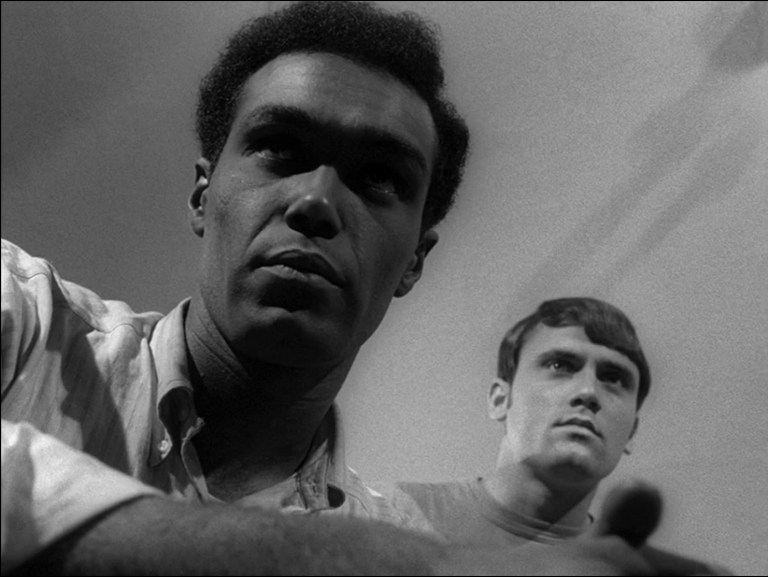
George A. Romero’s landmark black-and-white 1968 classic wasn’t the first zombie film, but it can fairly be called the one that launched an entire genre of copycats. During a sudden zombie invasion in Western Pennsylvania, a scared woman (Judith O’Dea) is rescued by a heroic black man (Duane Jones)—rare for that time in cinema—who boards them both up inside a house hoping they can fend off the living dead. But in the end, just when you think the zombies have been quelled, some vigilantes mistake the black man for a zombie and shoot him dead. So in a way, everyone loses in Night of the Living Dead.
A Clockwork Orange (1971)

Based on the futuristic dystopian novel by Anthony Burgess, A Clockwork Orange is a meditation on exactly how far a government can go in its attempts to prevent crime without becoming brutally criminal itself. It follows the trail of Alex (Malcolm McDowell), a young gang leader who remorselessly chases his lust for both sex and blood until he winds up in prison. Alex is administered a form of aversion therapy involving forced exposure to extremely violent material and injections that make him violently ill. The idea is that the therapy will make him become nauseous whenever confronted with violence and thus unable to commit violence himself. It works remarkably well, but a former victim of Alex’s tortures him by exploiting an unintended association of sickness to Beethoven, driving Alex to attempt suicide. Alex lives, and during his recovery he realizes that not only is he “cured” so he can go back to his criminal ways, but he also receives an apology from the government and a cushy job with a large salary.
The Wicker Man (1973)
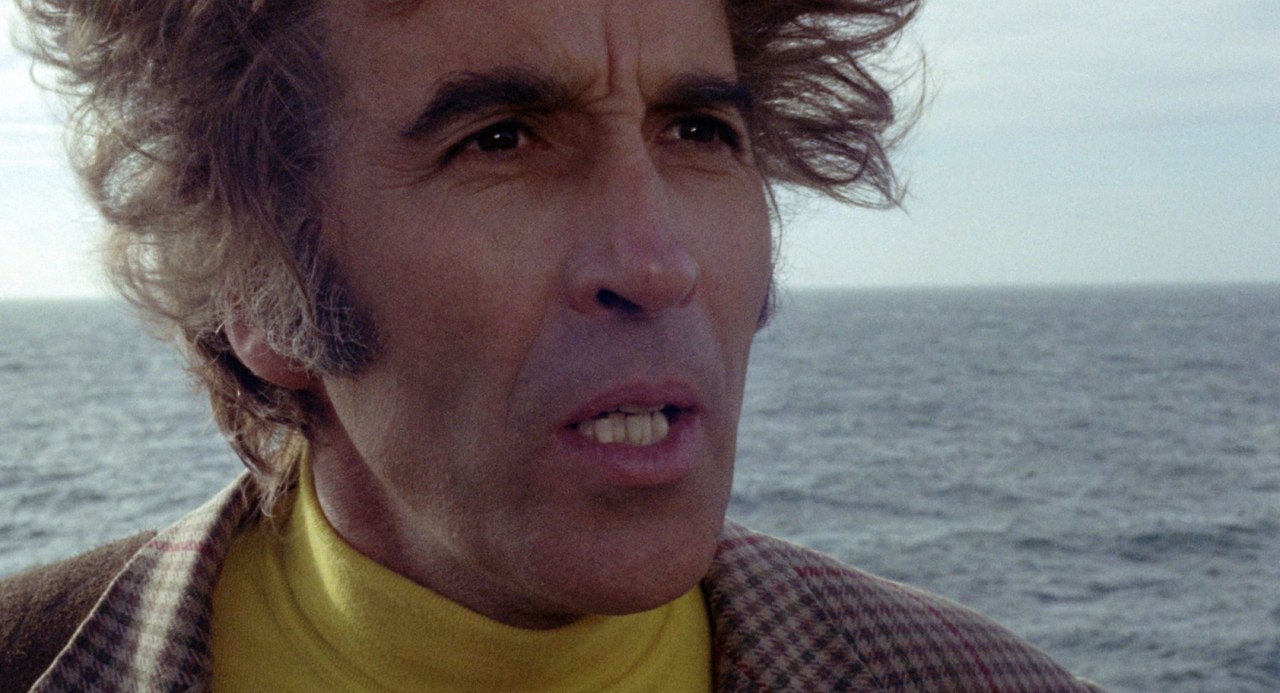
In The Wicker Man, a devout Christian detective (Edward Woodward) risks life and limb traveling to a remote island called Summerisle to rescue a missing girl. He finds himself a complete fish out of water, surrounded as he is by pagan islanders who mock his superstitions and practice an openly carnal lifestyle. In the end, the detective realizes he is to be offered up as a fiery human sacrifice to appeasements the pagan gods.
Chinatown (1974)
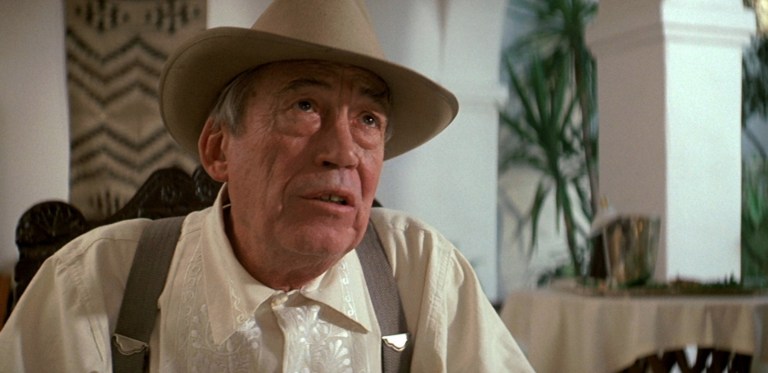
Chinatown is easily one of the best neo-noir mysteries ever. Jack Nicholson plays Jake Gittes, a private investigator who takes a job for what he thinks is a case of infidelity. Instead, Gittes is drawn into a complicated plot involving murder and some of the most powerful people in Los Angeles. The plot is worth keeping unspoiled if you’ve never seen the movie before (after all, Robert Towne won an Academy Award for Best Screenplay for Chinatown), so the only spoiler here will be to say that Jake Gittes’s investigation does not go well, leading to the iconic line: “Forget it, Jake. It’s Chinatown.”
One Flew Over the Cuckoo’s Nest (1975)
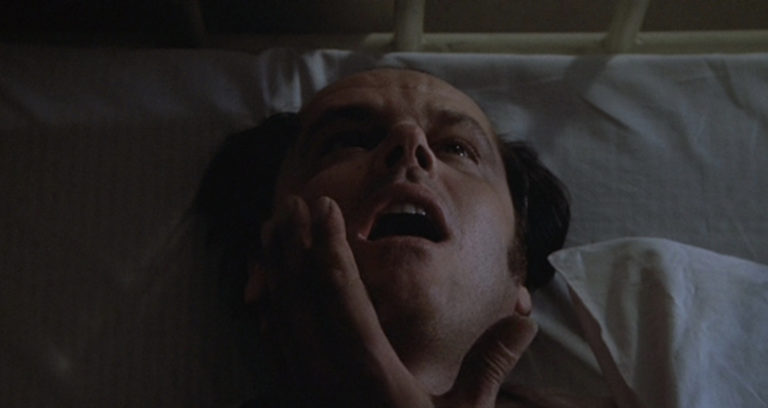
Based on Ken Kesey’s classic 1962 novel about the totalitarianism behind psychiatric care, One Flew Over the Cuckoo’s Nest is one of only three films in history to win all five of the top Academy Awards: Best Picture, Director, Actor, Actress, and Screenplay. Jack Nicholson stars as Randall McMurphy, a petty criminal who manipulates his way into a mental hospital rather than serve a prison sentence. There he locks horns with Nurse Ratched (Louise Fletcher), a coldly sadistic dorm leader who seems to delight in completely dehumanizing and mentally destroying the patients in her charge. One of the minor good guys actually makes an escape at the end, but the McMurphy winds up lobotomized.
The Omen (1976)
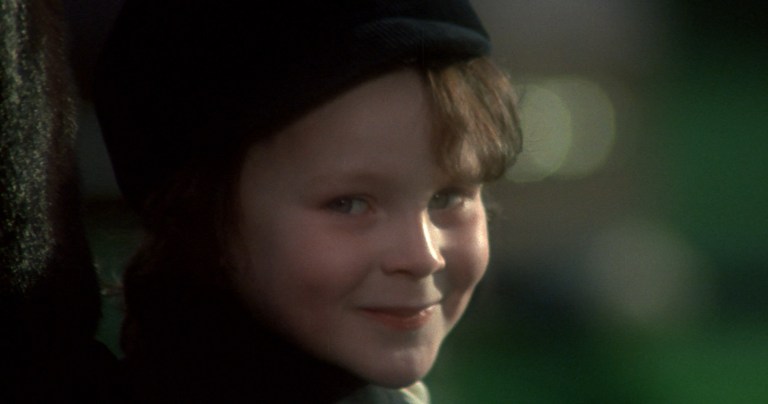
The third in the “Big Three” of Satanic blockbusters from the late 1970s to mid-70s—the other two being Rosemary’s Baby (1968) and The Exorcist (1973)—The Omen is similar to Rosemary’s Baby in that the Devil wins in the end. Gregory Peck plays Robert Thorn, a man who adopts an abandoned infant, only to slowly realize that the boy, whom he names Damien, is the Antichrist. Robert does all he can to take Damien to heel, going so far as dragging him by force into a church, but it’s all for naught. Robert is killed while attempting to end the life of his adopted child. We last see Damien attending his parents’ funeral, smiling and standing with the President of the United States.
Taxi Driver (1976)
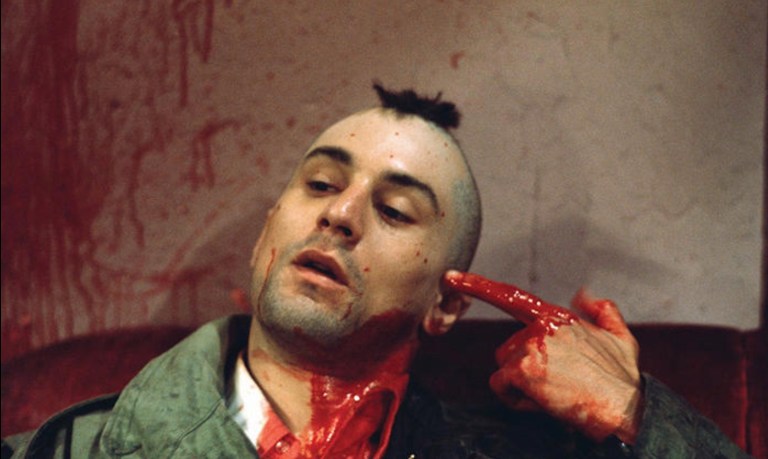
Robert De Niro is at his best in Taxi Driver as Travis Bickle, a mentally unhinged Vietnam vet who takes a job driving a cab on the night shift throughout a New York City that is violent, rotten, and unforgiving. As Bickle alienates women and stalks a presidential candidate, Travis anoints himself an avenging angel who vows to wash all the “scum” off the streets. His messianic impulse drives him save Iris (Jodie Foster), a 12-year-old prostitute, in a bloody hail of gunfire which he survives. And even though he technically murdered people and probably will keep doing so, Travis does no prison time. Instead, he becomes a public hero and continues driving his taxi.
Network (1976)
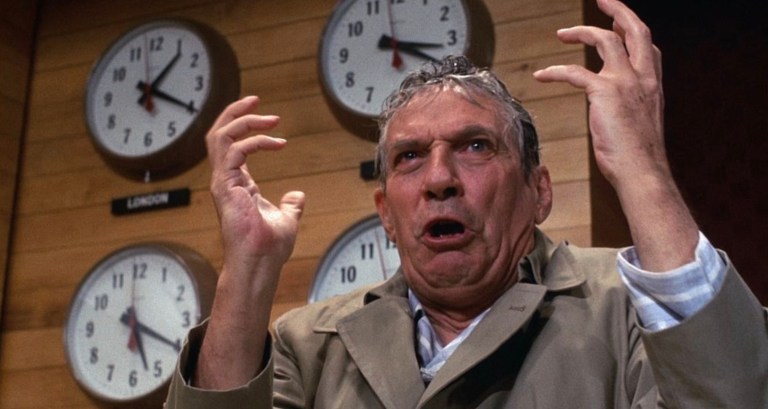
Peter Finch won a Best Actor Oscar for his portrayal as Howard Beale, an aging broadcaster who is not so subtly being nudged out of his job and into retirement by an aggressive new station manager (Faye Dunaway) who views the news not as a noble profession, but merely as a vehicle to get ratings and make money. One night after wandering in a stupor through a thunderstorm, Beale walks onstage, goes off-script, and tells his viewers that he’s mad as hell, and he’s not going to take it anymore—leading to a national trend and superstardom for Beale. In the end, as Beale’s ratings decline, TV executives hire an assassin to kill Beale on air.
Star Wars: Episode V – The Empire Strikes Back (1980)

The Empire Strikes Back is known as the darkest of all Star Wars movies, precisely because the Dark Side wins on every count. Whereas the first installment ended with the glorious explosion of the Death Star, the Empire comes raging back at the beginning of this movie by destroying the Rebel base on Hoth. Lando Calrissian betrays his colleagues. Han Solo is left frozen in a carbonite coma. Luke Skywalker suffers the loss of his hand. Luke also learns, to his tremendous dismay, that Darth Vader is his father.
Body Heat (1981)
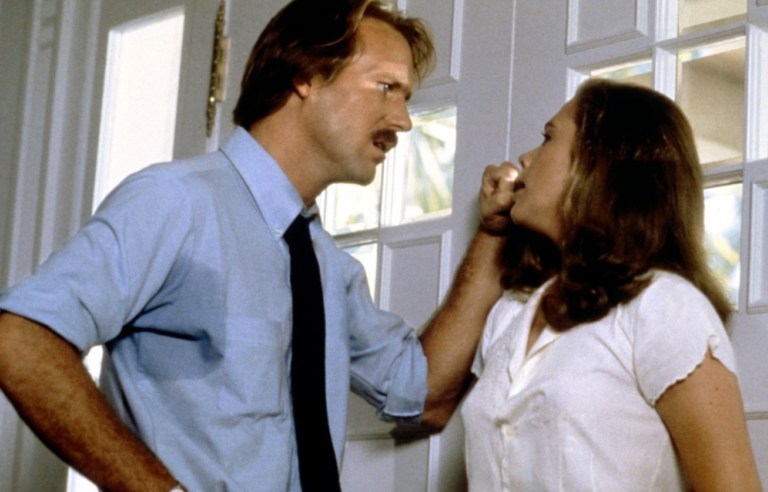
In Body Heat, director Lawrence Kasdan’s not-so-subtle tribute to the 1944 film Double Indemnity, Kathleen Turner turns in a career performance as a highly sexualized seductress. Her only ambition is to “be rich and live in an exotic land.” She achieves this by posing under a false identity, effortlessly slipping through murder plots and criminal frame-ups, until at the very end we see that she has achieved her goal—she’s lounging on a tropical beach, completely unharmed despite all her malicious behavior.
1984 (1984)
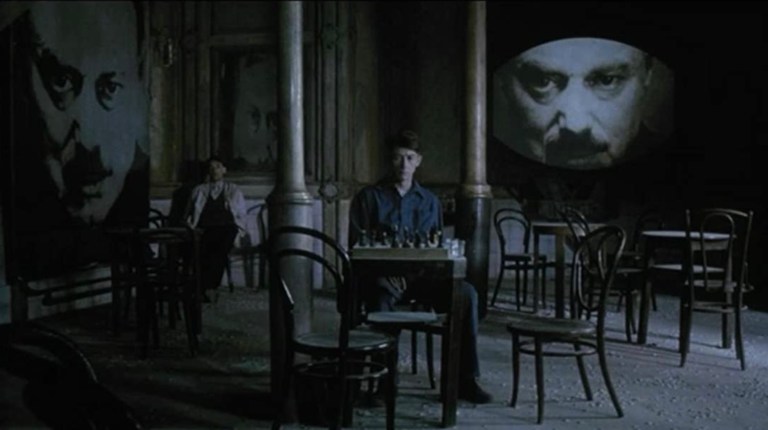
Starring as Winston Smith, John Hurt attempts to have an affair with a like-minded thought criminal, only to have his rebel spirit and sense of individuality crushed by Big Brother at every turn. Roger Ebert favorably compared this version—released ironically in the year 1984—to a 1954 cinematic rendering: “The 1954 film version of Orwell’s novel turned it into a cautionary, simplistic science-fiction tale. This version penetrates much more deeply into the novel’s heart of darkness.”
Angel Heart (1987)
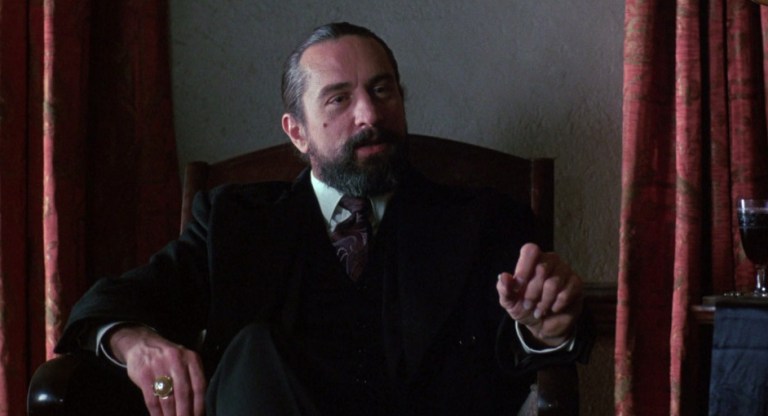
Angel Heart is a dark, supernatural neo-noir starring Mickey Rourke as private detective Harry Angel. Angel is hired by a Louis Cyphre (Robert De Niro) to find a man named Johnny Favorite. Angel’s investigation leads him to New Orleans where he becomes mixed up in dangerous occult practices while falling for a gorgeous woman named Epiphany Proudfoot (Lisa Bonet). Angel eventually uncovers something life-shattering about himself, and Cyphre turns out to be the devilish man orchestrating the whole scenario for his own benefit.
In the Mouth of Madness (1994)

In the Mouth of Madness is John Carpenter’s H.P.-Lovecraft-inspired tale of cosmic horror. Sam Neill in John Trent, and insurance investigator sent to a small town to look into the disappearance of author Sutter Cane (Jürgen Prochnow) and retrieve Cane’s final novel. Cane’s books are said to affect the mental state of readers, and even though Trent is skeptical, he finds himself drawn into a world of madness and monsters. In the Mouth of Madness is the third of Carpenter’s “Apocalypse Trilogy” which includes The Thing (1982) and Prince of Darkness (1987), and and even though all three movies end ominously, In the Mouth of Madness goes the furthest in firmly establishing the fact that the bad guys win.
Se7en (1995)
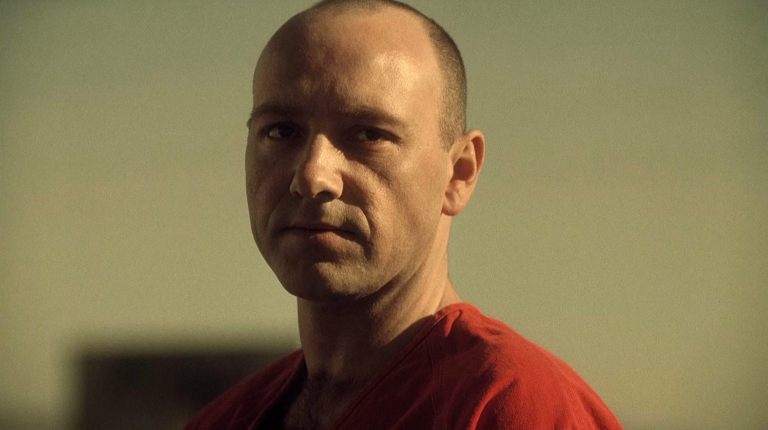
This scary detective movie stars Brad Pitt and Morgan Freeman as partners seeking to track down a serial killer who seems to select his victims based on the seven deadly sins. For a moment, it seems like Se7en could have a happy ending as the serial killer (Kevin Spacey) turns himself in. However, leading the detectives to his final victim, the killer triumphs when he is able to evoke “wrath” from one of them and is shot dead, ultimately completing his planned series of seven murders.
Primal Fear (1996)
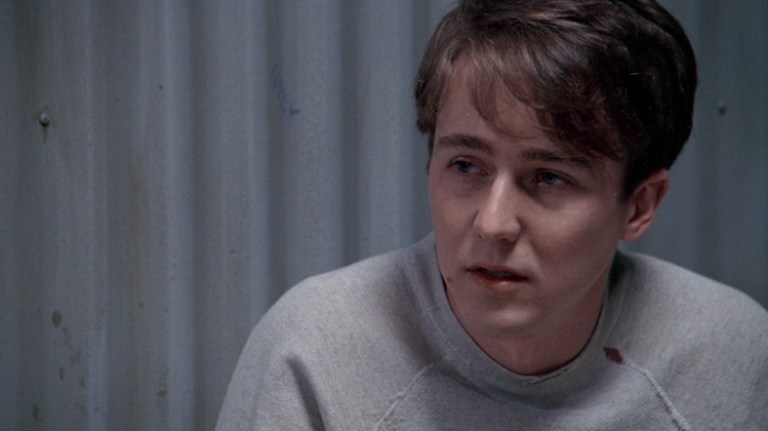
A Chicago attorney Martin Vail (Richard Gere) defends a stuttering teenage altar boy, Aaron Stampler (Edward Norton, in his film debut) who is accused of murdering an archbishop. Stampler convinces Vail that he has dissociative identity disorder, and Vail manages to convince a judge to deem the teen not guilty by reason of insanity. Right before the movie ends, Stampler mocks Vail, revealing that his personality disorder was a complete fraud. SF Gate praised the film: “Norton gets to show some admirable range as the defendant, a fellow whose stutter and aw-shucks politeness makes his altar boy credentials seem impeccable. The fact that everyone turns out to be exactly what he or she seems is one of this cynical movie’s more amusing conceits.”
Cure (1997)
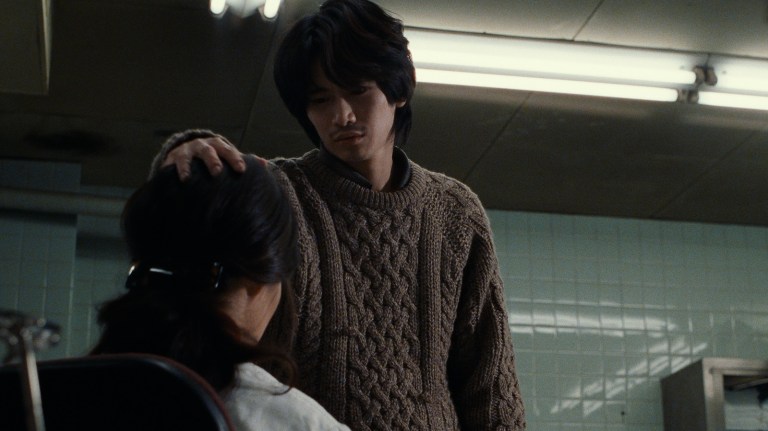
A Japanese psychological horror movie about a detective who investigates a strange series of murders. While the culprits are easy enough to find, none of their motives prove satisfying. The detective eventually comes to believe that they are being hypnotized into committing violent crimes and finds the man he believes to be responsible. In the end, the detective is able to kill the hypnotic man, but the final scene shows that the evil lives on.
Office Killer (1997)
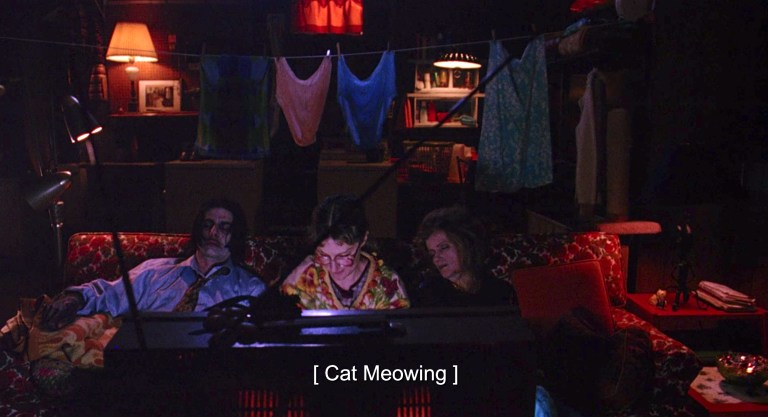
Although the titular Office Killer (played by Carol Kane) indeed gets away at the end of this horror-comedy directed by artist Cindy Sherman, the actual villain of this film is capitalism and office-culture at the end of the 90s. Kane plays Dorine, an editor at Constant Consumer magazine. As the magazine experiences budget cuts and layoffs, Dorine is forced to work from home. The resulting loneliness causes Dorine to murder several people from her office and set their bodies up in her basement office to keep her company.
At Constant Consumer Magazine there is but one constant rule: get the job done. This can be hazardous, however, when the laws of economics effect our workplace and threaten to downsize us. For those of you who cannot keep pace with such changes, be forewarned: you will be terminated.
Office Killer
Funny Games (1998)
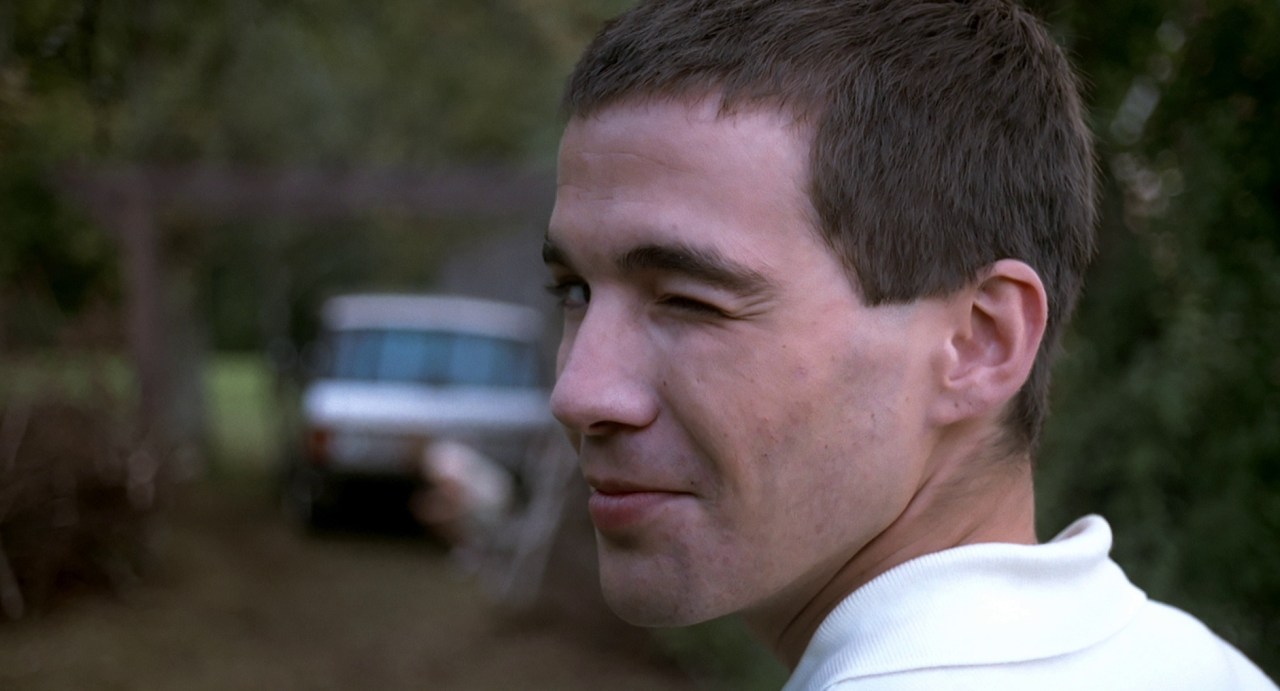
In Funny Games, two preppie-looking young males, Peter and Paul, invade a family’s house and systematically destroy their minds before killing them. There is a small bit of redemption when the family’s matriarch kills one of the two antagonists, but this is undone by some breaking of the fourth wall. Peter and Paul end up killing the entire family before moving on to their next set of victims. The Critics’ Consensus on Rotten Tomatoes is: “Though made with great skill, Funny Games is nevertheless a sadistic exercise in chastising the audience.” Which, to be fair, is probably the whole point.
Arlington Road (1999)
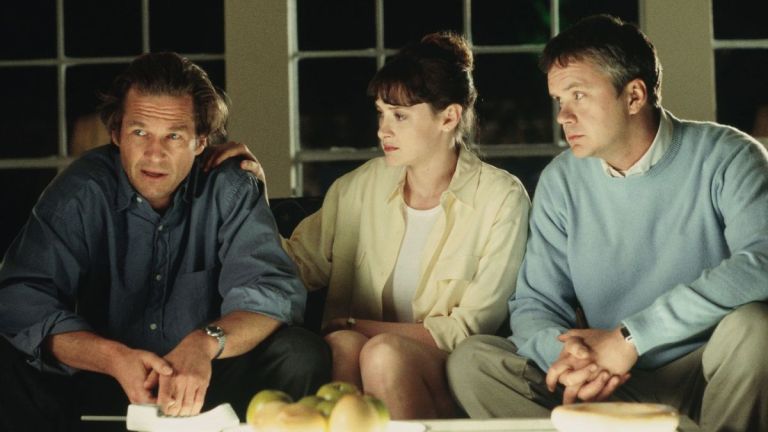
Heavily inspired by real-life events from the 1990s such as the Ruby Ridge massacre, the Waco siege, and the Oklahoma City bombing, Arlington Road stars Jeff Bridges as Michael Faraday, a terrorism expert and widower who starts to suspect that his neighbors are involved in a terroristic plot. In the end though, his neighbors (Joan Cusack and Tim Robbins) successfully frame him for a bombing. His neighbors move away and start plotting for the next person they can frame. Roger Ebert liked it but thought the evil ending was too much: “Arlington Road is a conspiracy thriller that begins well and makes good points, but it flies off the rails in the last 30 minutes. The climax is so implausible we stop caring and start scratching our heads.”
Unbreakable (2000)
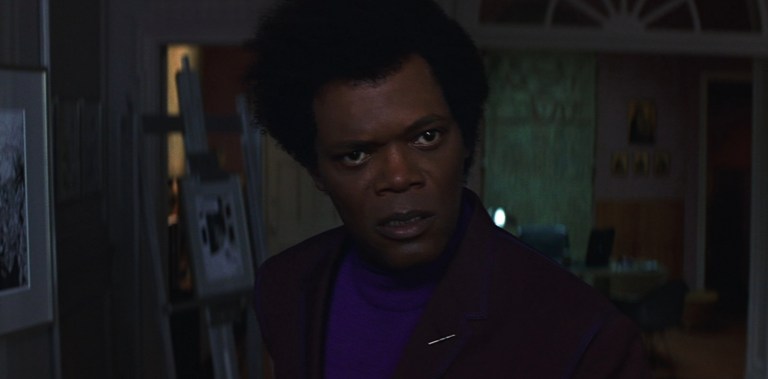
In M. Night Shyamalan’s Unbreakable, an ordinary man named David Dunn (Bruce Willis) slowly comes to realize he may have powers that set him apart from ordinary people. Dunn survives a deadly train accident without a scratch on him, and comic book expert Elijah Price (Samuel L. Jackson) encourages Dunn to explore his emerging abilities. After successfully convincing Dunn to accept his role as a hero, it is revealed that Price is a villain who killed multiple people by orchestrating a series of “accidents” to draw out a real life superhero. Even though Price, calling himself Mr. Glass, is sent to a psychiatric hospital, his plan worked perfectly, validating his own life of suffering as an origin story for a supervillain.
House of 1000 Corpses (2003)
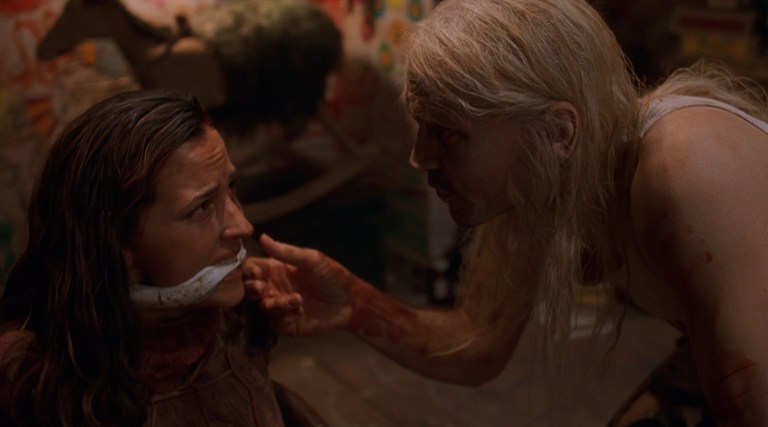
In this exploitation horror film by Rob Zombie, inspired by such classics as The Texas Chain Saw Massacre (1974) and The Hills Have Eyes (1977), a pair of couples traveling through rural Texas searching for strange and interesting diversions wind up trapped by a rural family of serial killers. Otis (Bill Moseley), Baby (Sheri Moon Zombie), Mother Firefly (Karen Black), and the rest of the Firefly family torture and murder the curious young people. One of the women, Denise (Erin Daniels) almost manages to escape the family and the underground lair of Dr. Satan, but local gas station owner/murder ride purveyor/creepy clown Captain Spaulding (Sid Haig) picks her up, only to turn out to be in on the murder.
Oldboy (2003)
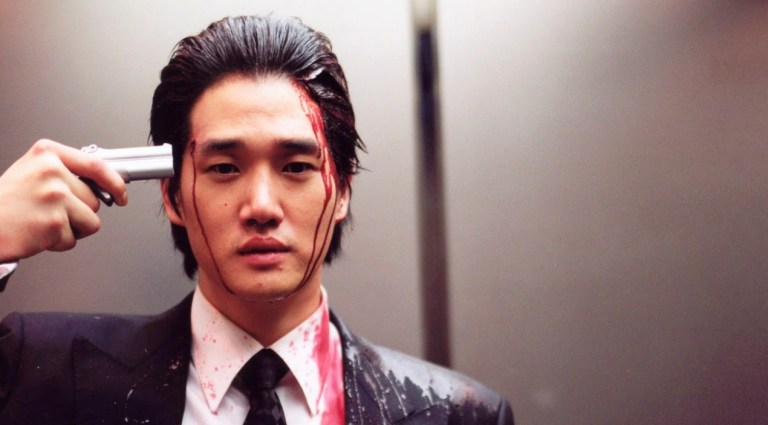
Park Chan-wook’s Oldboy is a masterful tale of revenge. The movie stars Choi Min-sik as Oh Dae-su, a man released after 15 years of imprisonment. Dae-su’s attempts to find out who put him away for a decade and a half leads him down a dark path that ends in some truly horrific revelations. The man behind the plot, Lee Woo-jin, successfully ruins Dae-su’s life, and, with nothing left to accomplish, chooses to end him own pain in his own way. Oldboy is the middle of a thematic trilogy which also incudes Sympathy for Mr. Vengeance (2002) and Lady Vengeance (2005).
Saw (2004)
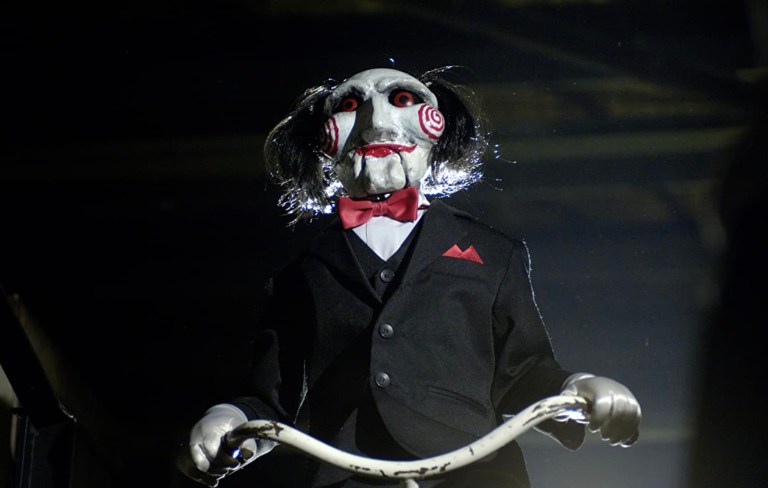
In Saw, the first of many films in the long-running horror franchise, two strangers (Cary Elwes and movie cowriter Leigh Whannell) wake up in a room, chained to the wall by an ankle. They are forced to play a game that plays out like a supremely dangerous escape room, and they slowly begin to piece together how they are connected to each other and why they are both there. In the end though, the mastermind behind their predicament, John Kramer aka Jigsaw (Tobin Bell), reveals that he has been posing as a dead body in the room the entire time. Jigsaw is the only person to walk out of the room still in possession of his life and all of his body parts.
Star Wars: Episode III – Revenge of the Sith (2003)
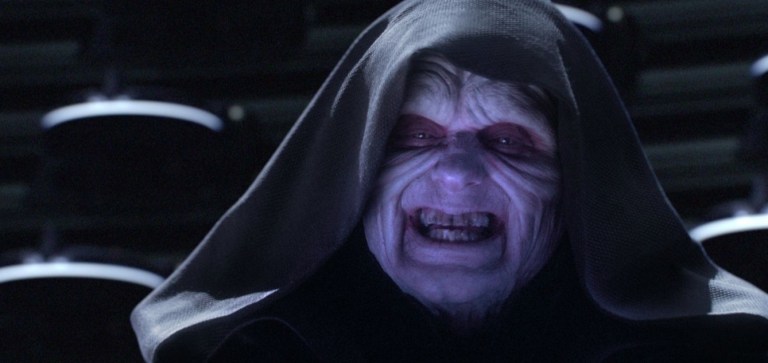
Even though everyone already knew what had to happen by the end of Revenge of the Sith even when the movie was first released, it’s still one of the best examples of the villain winning. Sheev Palpatine’s plan to assume ultimate power in the galaxy works as well as it could. His list of accomplishments include: assuming the role of Emperor, decimating the Jedi Order, and turning the “chosen one” Anakin Skywalker (Hayden Christensen) to the dark side. And he does it all with a smile on his face.
No Country for Old Men (2007)
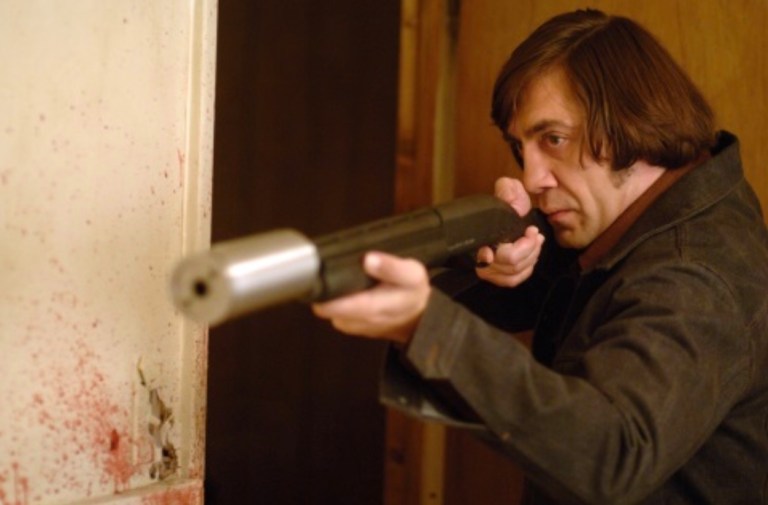
This Coen Brothers classic won the Academy Award for Best Picture. It centers around a botched big-money drug deal along the Rio Grande river. Javier Bardem shines as the antihero Anton Chigurh, a hitman who kills without remorse and emerges at the end with only minor injuries. A 2018 article in Business Insider stated that after a group of psychiatrists studied 400 movies, their consensus was that Anton Chigurh was the most accurate portrayal of a real-life psychopath.
Eden Lake (2008)
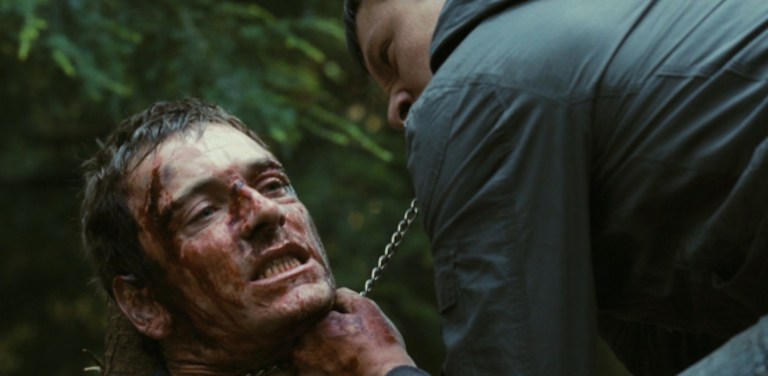
In James Watkins’ grueling British horror movie Eden Lake, Steve (Michael Fassbender) takes his girlfriend Jenny (Kelly Reilly) for a weekend getaway camping at a secluded spot on a picturesque lake. Steve plans to propose to Jenny, but local teenagers spoil his romantic ideas. What begins as a minor annoyance as the teens play loud music and fail to control their aggressive dog turns into a fight for survival as the group chases Steve and Jenny throughout the nearby woods. Steve is caught and tortured, and Jenny vacillates between running to find help and staying to rescue Steve. By the end of the movie, the ringleader of the group, Brett (Jack O’Connell), manipulates his friends into killing Steve, and Brett’s father helps him permanently deal with the escaping Jenny. All in all, Eden Lake is a horrifying and agonizing experience where it feels like the villain is actually gloating towards the audience.
The Cabin in the Woods (2011)
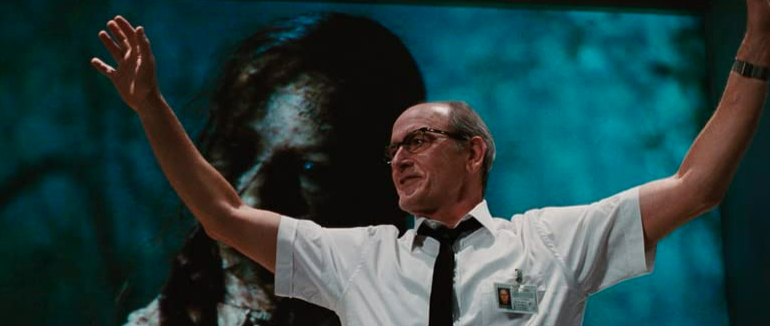
In The Cabin in the Woods, a group of college students head out to an isolated cabin in the woods for a weekend of partying. Unknown to them, there are any number of supernatural dangers waiting to violently murder them in and around the cabin. Also unknown to them is the fact that they are being observed by a group of people who conduct scenarios like this around the world as a way to perform sacrifices to appease the “Ancient Ones” who will destroy the world otherwise. If any of the college students live, the world is doomed. And, well, the sacrifice doesn’t go according to plan.
Nightcrawler (2014)
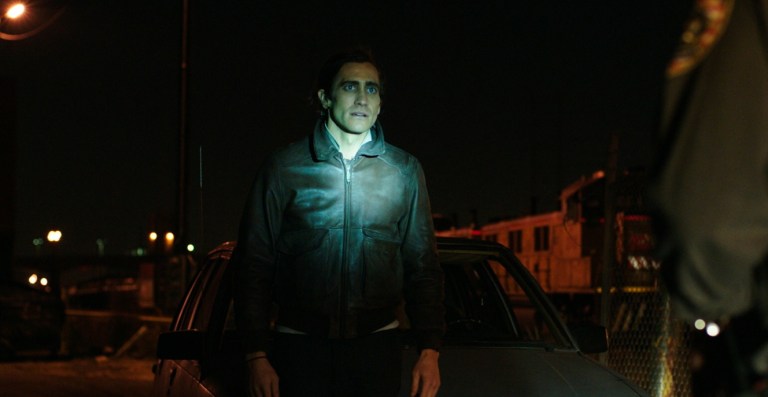
Jake Gyllenhaal stars in the neo-noir thriller Nightcrawler as Lou Bloom, a small-time criminal who stumbles onto a new scheme to make money. After coming across a car accident and learning that he can make money by selling video footage of accidents and crimes to news outlets, Lou begins a new career as a freelance journalist. In an effort to stay ahead of the competition and make the most money, Lou has no issues tampering with crime scenes, withholding evidence from police, and even getting people killed so he can record their deaths. In a scathing commentary on modern news media, Lou is continually rewarded for his efforts, and by the end of the movie he is seen to be expanding his business.
Alien: Covenant (2017)
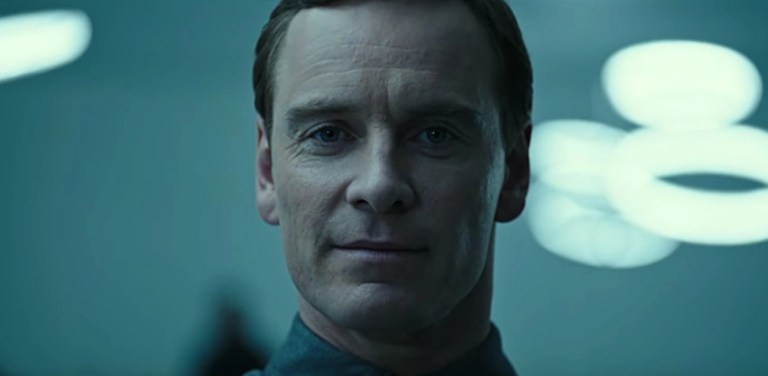
Director Ridley Scott had originally planned to continue making more films in the Alien franchise, but his plans were put on hold when Alien: Covenant proved to be a disappointment for fans who were looking for a happy ending. Michael Fassbender stars as two identical androids with very different personalities—the likable, outgoing Walter, and a calculating killer named David. David, under the guise of Walter, emerges victorious, putting the surviving humans into stasis and smuggling alien embryos aboard a starship. Vulture.com explains how the character of David consumes the entire film: “David, and by extension Fassbender, isn’t just sticking around because it’s right for the movie. David has become the movie, in the way that the best villains often do.”
Hereditary (2018)
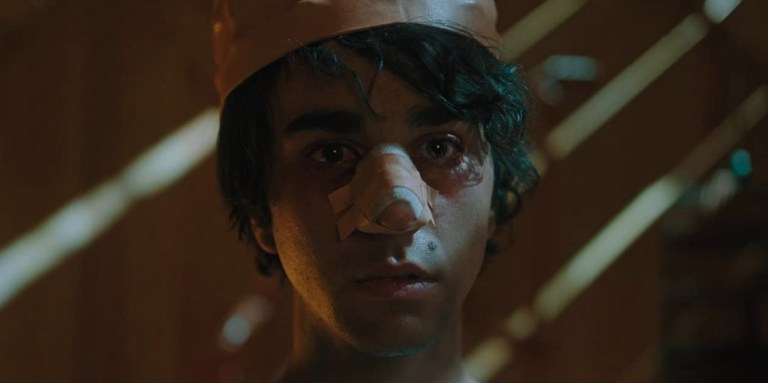
A family is ripped apart by a demonic cult in Ari Aster’s amazing supernatural horror movie Hereditary. Toni Collette is Annie, the matriarch of a family whose troubled past contributes to the chaos that ensues after the death of Annie’s mother. There are beheadings and witchcraft involved, and in the end, the will of the demon-king Paimon is brought into our world.
Avengers: Infinity War (2018)
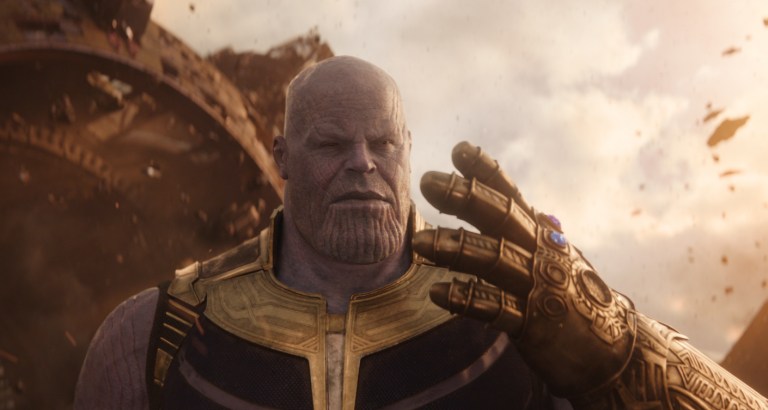
Marvel subverted their own good guys versus bad guys narrative on which all comic books and superhero movies are founded in this dark tale where superheroes rise up to fight the forces of evil, only to have the forces of evil—embodied in a character named Thanos—wipe out half of all life in the universe with one snap of his fingers. If genocide is the ultimate evil, Avengers: Infinity War shows the ultimate bad guy triumphing in the end. But like so many great villains, Thanos truly believes he is the hero of this story.
Joker (2019)
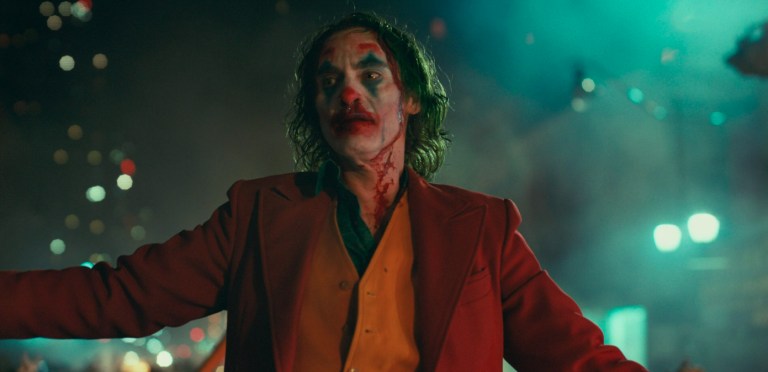
Though Arthur Fleck in Joker may be a sympathetic character at times, and even though he may consider himself the hero of his own story, his premeditated murders in the movie make him a villain. Even so, Arthur Fleck’s transformation into The Joker is a win for the character. By the end of the film, Fleck is finally comfortable with himself, and he is even seem presumably escaping from Arkham State Hospital.
More Movies Where the Villain Wins

- Manos: The Hands of Fate (1966) features the bad guy turning the good guys into his slaves at the end.
- The Stepford Wives (1975) – A husband and wife move to an idyllic neighborhood of Stepford, only to find that the women of Stepford are part of an inescapable cycle of forced gender roles.
- Invasion of the Body Snatchers (1978) has the emotionless pod people winning out over normal people and their inconvenient emotions.
- A Nightmare on Elm Street (1984) is a prime example of cheesy endings in slasher movies, with Freddy Krueger getting in one final scare before the credits roll.
- Brazil (1985) is a dystopian sci-fi fantasy that makes you want to run away from the future back toward the warm safety of the past.
- The Vanishing (1988) proves that evil can triumph over good in dramatic fashion.
- The Silence of the Lambs (1991) shows the end of Buffalo Bill, but it ends with gruesome killer Hannibal Lecter walking free and stalking another human to eat.
- Carlito’s Way (1993) stars Al Pacino as a criminal who just wants to retire peacefully, but he ends up being pulled back into a life of crime that ends badly.
- Se7en (1995) has one of the seven deadly sins emerging victorious at the end—no prizes for guessing which one.
- The Usual Suspects (1995) ends with the almost mythical criminal Keyser Soze outwitting everyone and getting away.
- 12 Monkeys (1995) Bruce Willis and Brad Putt star in this Terry Gilliam movie about a quest to travel to the past to change the future, but time is more difficult to alter than they anticipate.
- The Crucible (1996) is set during the Salem Witch Trials, but this time the witches win.
- Fallen (1998) is director Gregory Hoblit’s follow-up to Primal Fear, and the bad guy wins again.
- The Blair Witch Project (1999) the witch wins in this seminal found footage horror movie.
- Identity (2003) features a revelation that throws the whole movie into a different perspective, but it’s safe to say that a version of the bad guy wins in the end.
- Secret Window (2004) stars Johnny Depp as a writer who (presumably) gets away with some horrific deeds.
- Valkyrie (2008) ends on a dark note (Hitler stays alive) and is partially based on a true story.
- The Dark Knight (2008) spotlights Heath Ledger as the villainous Joker, who, even though he is apprehended, manipulates Batman and Harvey Dent into a scenario where either Dent causes Goham to lose all hope, or Batman has to sacrifice his own reputation. Either way, it’s a win for the Joker.
- Watchmen (2009) depicts a plan by former superhero Ozymandias to prevent nuclear war by framing a fellow hero for destroying multiple major cities. The plan works, and the world is united against a common enemy, despite the price of countless live.
- Rubber (2010) features a sentient tire named Robert who murders people and animals with telekinesis and rolls away with no repercussions.
- Gone Girl (2014) features so many villains, it’s impossible to tell who the good guy is. Bad guys win by default.
- Creep (2014) features Mark Duplass as a creepy weirdo who stalks and kills a hapless man.
- Whiplash (2014), depending on your perspective, has the abusive music instructor Terence Fletcher (J.K. Simmons) win by validating his methods of teaching by pushing Andrew Neiman (Miles Teller) to be the best he can be.
- The Neon Demon (2016) the lust for eternal beauty turns everyone into either a villain or a sacrifice in the end.
- Captain America: Civil War (2016) gives MCU fans a villain, Helmut Zemo, who successfully splits the Avengers apart.
- Upgrade (2018), from Leigh Whannell, is about an artificial intelligence called STEM that successfully takes control of a man’s mind.
- Brightburn (2019) is a twisted version of a superhero origin story, where a Superman-like boy uses his powers for evil rather than good.
- The Rental (2020) Two couples vacationing at a rental house discover that a killer is watching and waiting for the right moment to strike.
- Speak No Evil (2022) a fun visit to a friend’s house turns tense and uncomfortable when the hosts become hostile.
